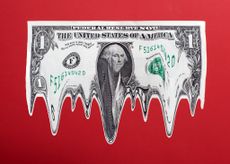Stock Markets
The latest news, updates and opinions on Stock Markets from the expert team here at MoneyWeek
Explore Stock Markets
-

Should you sell your US stocks?
The turbulent events of 2025 and early 2026 have dealt a blow to the concept of US exceptionalism, but the US stock market is still going strong
By Dan McEvoy Last updated
-

Three emerging-market stocks to diversify your portfolio
Opinion Omar Negyal, portfolio manager, JPMorgan Global Emerging Markets Income Trust, highlights three emerging-market stocks where he’d put his money
By Omar Negyal Published
Opinion -

Exciting opportunities in biotech
Biotech firms should profit from the ‘patent cliff’, which will force big pharmaceutical companies to innovate or make acquisitions
By Max King Published
-

What turns a stock market crash into a financial crisis?
Opinion Professor Linda Yueh's popular book on major stock market crashes misses key lessons, says Max King
By Max King Published
Opinion -

The state of Iran’s economy – and why people are protesting
Iran has long been mired in an economic crisis that is part of a wider systemic failure. Do the protests show a way out?
By Simon Wilson Published
-

The rise and fall of Nicolás Maduro, Venezuela's dictator
Nicolás Maduro is known for getting what he wants out of any situation. That might be a challenge now
By Jane Lewis Published
-

Three Indian stocks to buy for long-term profit growth
Opinion Rita Tahilramani and James Thom, co-managers at the Aberdeen New India Investment Trust, highlight three Indian stocks to buy now
By Rita Tahilramani Published
Opinion -

New year, same market forecasts
Forecasts from banks and brokers are as bullish as ever this year, but there is less conviction about the US, says Cris Sholto Heaton
By Cris Sholto Heaton Published
-

Why does Donald Trump want Venezuela's oil?
The US has seized control of Venezuelan oil. Why and to what end?
By Simon Wilson Published
